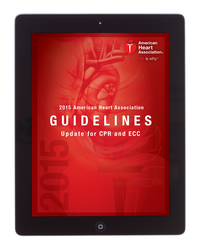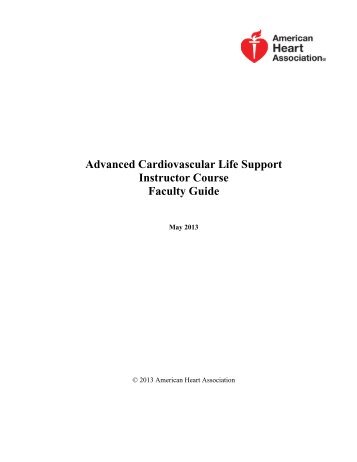American Heart Association Acls Provider Manual 2012
Required. I do understand that my Credit Card will be charge a fee of $75.00 if I didn’t cancel the class within 72 hours. I understand that there is no refunds for a no show or cancellation the day of the class or I don’t finish the course. I understand that I must have the current ACLS EP Provider Manual. What’s New?. Pre – Course Assessment is required with a passing score of 70% to enter the course.


American Heart Association Acls Provider Manual 2012 Answers
The beauty of that is that your students will arrive prepared to take and successfully complete their ACLS Course The Provider manual also includes access to a Student Website on page #II to access the pre-assessment go to www.heart.org/eccstudent enter code acls15.
Official American Heart Association ACLS Card Course Description: The American Heart Association’s Advanced Cardiovascular Life Support course is totally redesigned for healthcare providers who either direct or participate in the resuscitation of a patient, whether in or out of hospital. Through the ACLS course, providers will enhance their skills in the treatment of the adult victim of a cardiac arrest or other cardiopulmonary emergencies. ACLS emphasizes the importance of basic life support CPR to patient survival; the integration of effective basic life support with advanced cardiovascular life support interventions; and the importance of effective team interaction and communication during resuscitation. The San Francisco American Heart Association (AHA) ACLS is based on simulated clinical scenarios that encourage active, hands-on participation through learning stations where students will practice essential skills individually, as part of a team, and as team leader.

2016 tomos sprint owners manual. Realistic simulations reinforce the following key concepts: proficiency in basic life support care; recognizing and initiating early management of peri-arrest conditions; managing cardiac arrest; identifying and treating ischemic chest pain and acute coronary syndromes; recognizing other life-threatening clinical situations (such as stroke) and providing initial care; ACLS algorithms; and effective resuscitation team dynamics.